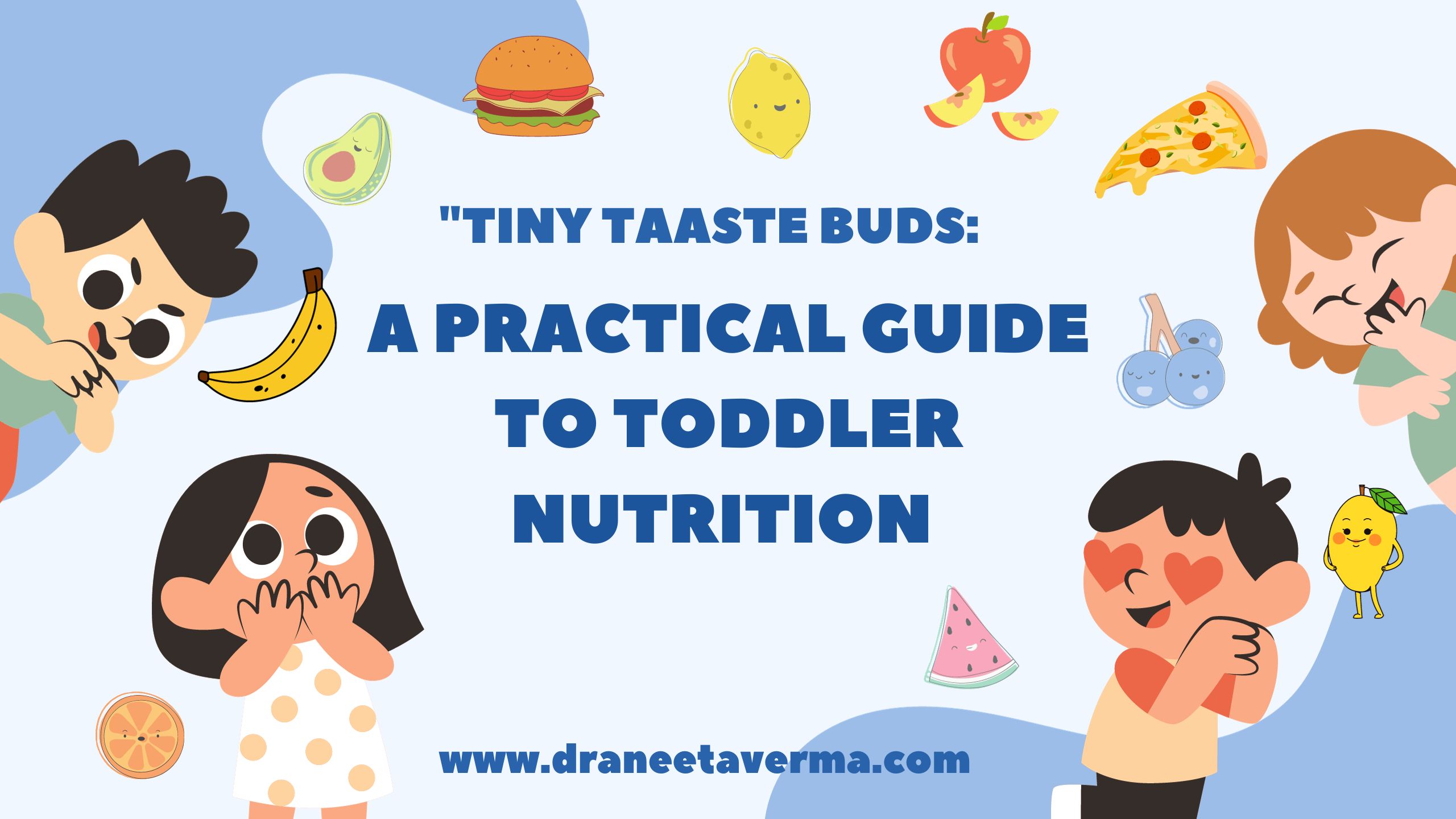+918048051883

This is your website preview.
Currently it only shows your basic business info. Start adding relevant business details such as description, images and products or services to gain your customers attention by using Boost 360 android app / iOS App / web portal.
"Tiny Taste Buds: A Practical Guide to Toddler ...

"Tiny Taste Buds: A Practical Guide to Toddler Nutrition" Ensuring the optimal nutrition of toddlers is crucial for their growth, development, and overall well-being. Toddlers have unique dietary needs, and providing them with a balanced and nutritious diet sets the foundation for a lifetime of healthy eating habits. This article explores essential aspects of toddler nutrition and offers practical tips for parents and caregivers. 1.Understanding Toddler Nutritional Needs: Toddlers, typically aged between 1 and 3 years, experience rapid growth and development. Their nutritional requirements differ from those of infants and older children. Key nutrients for toddlers include: Protein: Essential for growth and muscle development. Calcium: Vital for bone and teeth formation. Iron: Supports cognitive development and prevents anemia. Vitamins and minerals: Play a crucial role in overall health and immune function. 2.Building a Balanced Plate: Fruits and Vegetables: Provide a colorful array for a variety of vitamins and minerals. Whole Grains: Offer whole grain cereals, bread, and pasta for fiber and sustained energy. Proteins: Include lean meats, poultry, fish, eggs, and plant-based protein sources like legumes. Dairy or Dairy Alternatives: Ensure an adequate intake of calcium for bone health. 3. Portion Control and Meal Frequency: - Toddlers have small stomachs, so offer small, frequent meals and snacks. - Pay attention to portion sizes to prevent overeating and promote a diverse diet. 4. Introducing New Foods: Gradually introduce new foods to expand the toddler's palate. Be patient and allow time for acceptance; it may take several attempts for a child to embrace a new food. 5. Hydration: - Water is the best beverage choice for toddlers. - Limit fruit juices and avoid sugary drinks to prevent added sugars. 6. Allergen Awareness: - Introduce potential allergens one at a time, observing for any adverse reactions. - Consult with a healthcare professional if there is a family history of food allergies. 7. Role Modelling: - Parents and caregivers serve as role models for healthy eating behaviours. - Eat meals together as a family to create a positive eating environment. 8. Snack Smart: -Choose nutrient-dense snacks like fruits, vegetables, and yogurt. -Limit processed snacks and sugary treats. 9. Addressing Picky Eating: Offer a variety of foods to cater to changing tastes. Involve toddlers in meal preparation to pique their interest in different foods. 10. Multivitamin Supplements: Consult with a pediatrician before introducing supplements. In some cases, a multivitamin may be recommended to fill nutritional gaps. Proper toddler nutrition is a cornerstone for physical and cognitive development. By understanding and implementing these guidelines, parents and caregivers can provide a solid nutritional foundation for their toddlers, fostering a love for wholesome foods and promoting a lifetime of good health. Regular communication with healthcare professionals ensures that individual nutritional needs are met, supporting the unique journey of each toddler towards a healthy and happy childhood.

